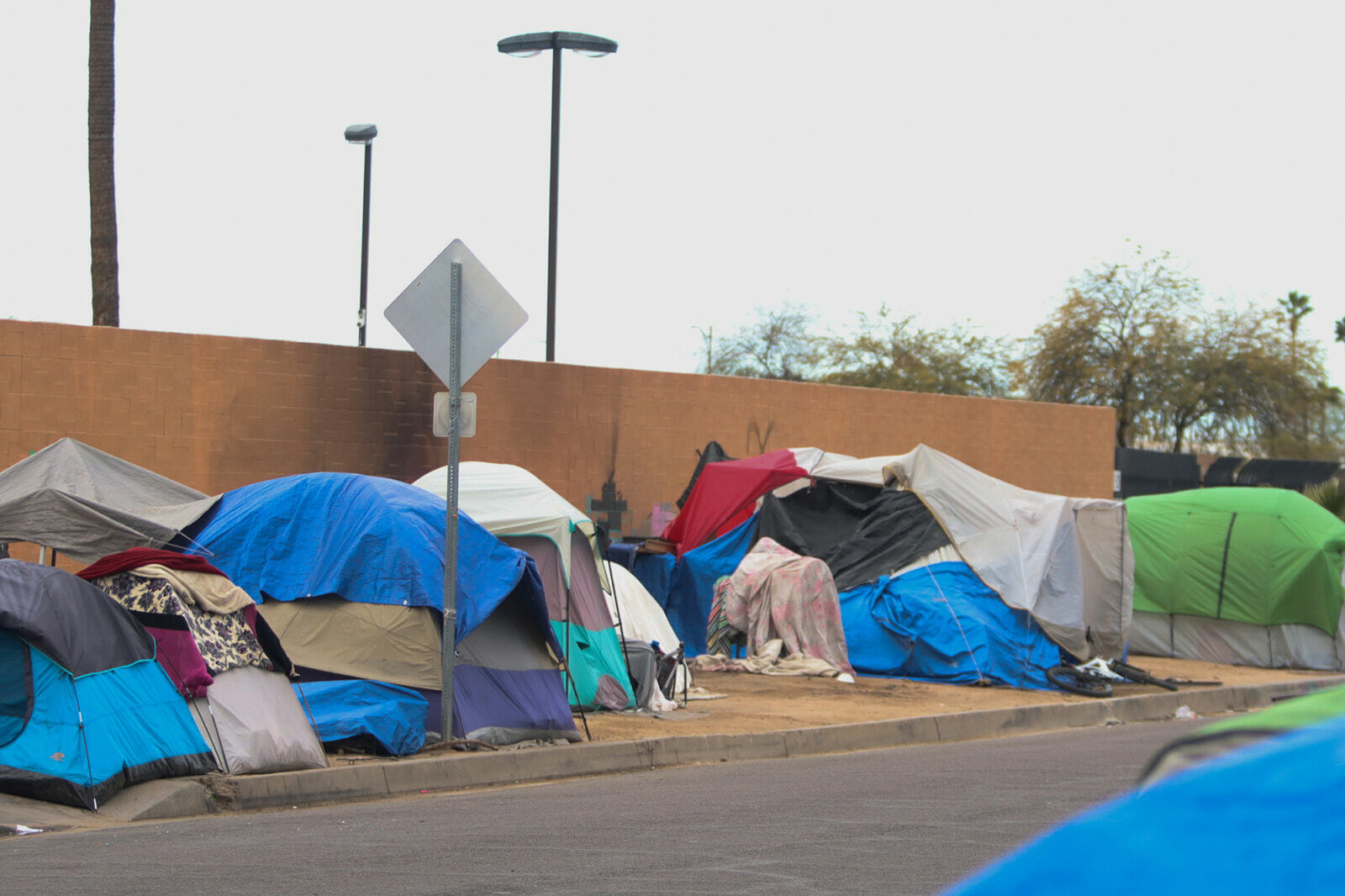A Maricopa County judge declared Phoenix’s homeless “Zone” an illegal public nuisance this afternoon after property and business owners in the area sued the city for encouraging hundreds of homeless people to reside in tents in a vast swath of downtown. The 27-page ruling, which gives the city until November 4 to abate the nuisance, is a victory for law-abiding citizens whose livelihoods have been destroyed as violent crime, open drug use, and more surge.
LEARN MORE: Scottsdale plan to turn hotel rooms into housing for homeless raises concerns
The case—in which the Goldwater Institute has filed several friend-of-the-court briefs since the suit began more than a year ago—has become the focus of national attention, given both the recent surge in homelessness and rulings by the Ninth Circuit Court of Appeals that, according to city officials, make it harder to combat the problem.
Today’s decision finds that beginning in 2018, the city “intentionally stopped—or at least materially decreased—enforcement of criminal, health, and other quality of life statutes and ordinances in the Zone.” The city currently “maintains a policy of transporting homeless individuals into the Zone from other areas of the City,” it adds. The result, as every Phoenician knows by now, has been “a dramatic increase in violent crime,” and “a serious environmental nuisance—a biohazard—that empties into the state’s waterways.”
The city claims that it can’t do anything about the homelessness problem as a result of the Ninth Circuit’s rulings in the infamous Martin and Grants Pass case (the latter of which we blogged about earlier today), but the court finds that this is just an excuse: “neither case precluded municipalities from enforcing prohibitions against fires, stoves, or structures that do not provide the most rudimentary precautions against the elements,” the judge observed. “But the most glaring misinterpretation of the Martin and Grants Pass opinions is the inference that anyone who has erected a tent or other structure in the public rights of way is intrinsically unable to otherwise obtain shelter…. The cases also do not support the inference that anyone in the Zone that is using illegal drugs, is publicly intoxicated and/or passed-out, is committing criminal acts, and/or is engaging in some type of public indecency, is involuntarily engaging in the offending conduct as an unavoidable consequence of his or her status.”
It’s true that “the Martin and Grants Pass decisions created an unworkable mandate based upon questionable legal analysis,” the judge declared. “One need only look at the multitude of dangerous and dehumanizing homeless encampments and open-air drug markets in cities under the jurisdiction of the Ninth Circuit—such as the Zone in Phoenix—to see the profound impact that Martin and Grants Pass have had.” Nevertheless, these cases do not justify the city running an open-air homeless shelter in the streets of Phoenix.
As for next steps, the court orders the city to abate the nuisance by November 4—including removing all tents—and to “maintain its public property in the Zone in a condition free of: (a) tents and other makeshift structures in the public rights of way; (b) biohazardous materials including human feces and urine, drug paraphernalia, and other trash; and (c) individuals committing offenses against the public order.” The judge then set a hearing for November 30 where the city must report on its progress in following through with this order.
This is not at all the end of The Zone story. In addition to the city’s reluctance to enforce the law, there’s also the pending federal case, and the possibility that the city will appeal this ruling to the Arizona Court of Appeals. But today’s ruling is at least a vindication of the rights of the innocent property and business owners in The Zone who have been bearing the burden of the city’s refusal to do its duty—and a first step toward actually addressing the problems of homelessness in Phoenix.
You can learn more about The Zone crisis here.
Author: Timothy Sandefur is the Vice President for Legal Affairs at the Goldwater Institute.




